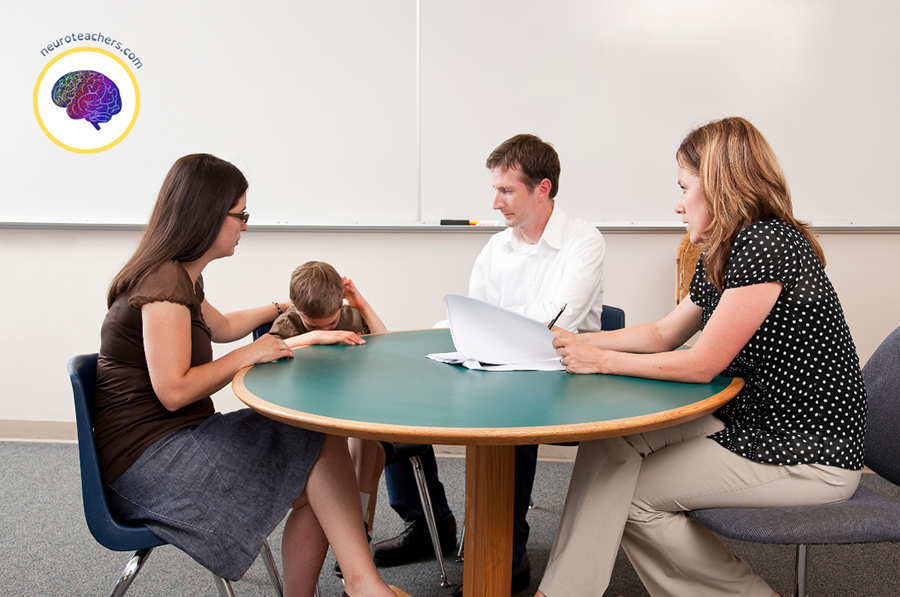Disagreement is a natural part of human interaction. This is particularly the case when dealing with sensitive issues such as the care and education of a child. In this guide we will look 10 top tips which can help prevent conflicts arising or mitigate their effect when they arise.
What is open discussion?
Be transparent and remember that all parties are here for the pupil and have their best interests at heart.
Benefits of open discussion
Avoiding disagreement and conflict benefits no one whereas airing difference of opinion and grievances can be constructive and helpful.
Challenges of achieving open discussion
At times it may be hard find common ground but by preparing well and making sure that there is the space, time, and venue available for all personnel and parents/ carers to be present, discussions can be useful and productive.
This guide will help you to find a way to air and investigate grievances and difference
in productive manner

10 Tips
1. Operate and Open Door Policy
Schools that have effective communication with parents give everyone confidence to discuss any issue at an early stage. This can often prevent disagreements becoming conflict as everyone feels heard.
2. Be Relational
If you are a parent/ carer, remember an individual teacher is just that; a person who works at a school. They are not ‘the school’ nor ‘the system’ even if they may be representing them. They will have limited information, power and influence. Don’t expect help beyond their scope. Teachers, remember parents and carers know their children better than anyone. You
are both on the same side; there to support the child.
3. Listen Actively
Whether you are a parent, carer or teacher, take time to listen to each other’s point of view. This means talking in a distraction free environment and dropping any pre-conceived ideas you may have. Be curious, ask inquisitive yet respectful questions and try and really understand where others are coming from. Share this information with others where appropriate and helpful
4. Promote Difference
Teachers, parents and carers may come from a range of different backgrounds, cultures or have protected characteristics which may cause them to see things from different angles. Having a school and community culture which celebrates and embraces difference means people are more likely to feel heard and understood.
5. Be Supportive
Discussions may be sensitive or even triggering in some cases. The teacher, parent or carers may have mixed emotions about the issue. They could be nervous or anxious before even coming to the table. Try and create a space where all parties feel psychologically safe. Allow breaks and time outs if conversation gets heated.

6. Prepare Yourself Mentally
Think of what you will need to do/ prepare to come to the meeting or communication in a calm and regulated manner. Perhaps allow extra time before hand to get some quiet space to breath and reflect. Never email/ reply to messages in haste! Make sure your own physiological needs are met so that you are hydrated, toilet and not hungry or uncomfortable. These may seem like insignificant factors, but physical discomfort can trigger dysregulation so give yourself a fair chance by meeting your own needs.
7. Get your facts straight.
Make sure you have all the facts, figures and timelines of the situation or needs at your disposal prior to the discussion or communication. This should be done as objectively as possible with the aim of solving problems. You may want to risk assess/ trouble shoot any problems that may arise and look for any possible solutions during your preparation time.
8. Stick to the Point
Make the reason for and purpose of any meetings or communication clear prior to setting it up. Provide an agenda. Have a neutral chair person who can keep all parties on track. Make sure everyone has a chance to air their concerns about the specific issue but does rake over past or unrelated incidents. Give enough time for everyone to have their say and no more.
Leave with action points.
9. Be Solution Focused
It is often said that the art of diplomacy is about giving others ladders to climb down. This means the main aim of any meeting or correspondence should be finding mutually acceptable and amicable solutions. Parents/ carers and teachers alike should be aware there may need to be some element of compromise for the common good, and, most importantly, the good of the child you are all working to support.
10. Don’t ignore or avoid conflict
No one benefits from allowing concerns and grievances to fester. This usually only leads to
further division and mistrust and ultimately this does not help the child. Use the tips above to open meaningful lines of communication. Hopefully these will help you to find a meaningful
resolution.
About the Expert:
Catrina Lowri is a neurodivergent former SENCO and Advisory Teacher. She founded her company, Neuroteachers to improve inclusion for neurodivergent people. She works with nurseries, schools, colleges, and businesses providing consultancy, training and mentoring to create belonging and understanding for people with the full range of neurotypes.
